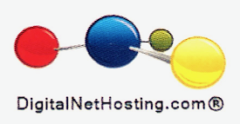Monster Amazon Crocs – Why Creative Brand Names Work Best
The most common company naming trap is this – creating a new business name that’s accurate and descriptive, but utterly forgettable. And it’s easy to see how it happens. Unlike real life application, naming is usually done in a vacuum — with no context, no accompanying logo, web site or brochure copy. A group of key decision makers sit in a boardroom and toss names around in the air. And with no supporting cast, no background, no props, the good names often seem disconnected and even ridiculous. It’s at this stage the mind wants to make sense of the names and without context, without supporting elements, it defaults to free associations from the past. This is what kills off many a great brand name.
Imagine a committee looking for a brand name for a new computer company. Someone suggests the word “apple.”
“Apple?” the group reacts in shock and bewilderment.
“That makes me think of my mother saying ‘One bad apple spoils the whole bunch,'” one committee member protests.
“It sounds like something fruity to me,” claims another. “We can’t be perceived as a fruity company!”
“And what about worms that get into the apples,” a third member agrees. “And the way they rot, and how the juice gets sticky, and how…”
“All right!” the suggestee apologizes, curling up in a near fetal position, vowing she’ll never venture another idea.
And so the group comes to absolute agreement that the name must convey what the company does. So the next set of suggestions seem right on target…
“United Computer Manufacturers”
“General Computer Systems”
“Quality Computer Corporation”
“Superior Computer Builders”
“Global Computer Worldwide”
The closer the committee comes to describing the “what” of the company, the more they become homogenized and blend right into the rest of their industry. They sound more like a business description than a brand name, and in doing so they obscure the very identity they are trying to create. They don’t realize that the new company name will exist in a setting that helps define it, so that the name is free to evoke feeling and emotion. An apple is fresh, approachable, healthy, and invigorating. And so a company can borrow on the attributes inherent in a completely unrelated item to convey the way they approach its business.
So if creative company names are so much more memorable and effective than descriptive names, why is it that so many businesses make this basic mistake? In large part it’s because we conditioned from childhood to conform, to be like others, and to follow the leader. As much as we don’t like to admit it, most of us would rather follow an established trail than to blaze a new one. One of the first questions I ask potential clients is whether they want their new company name to blend in, or to stand out. Most adamantly say they want to stand out, but when stand out names are presented, the red flag goes up.
“I’m not sure,” they might say. “These names are unique, but they’re so different from anything in our industry.”
And so it goes. The names continue to blend in until someone names an airline Virgin instead of Southwest. Or an online job site Monster instead of CareerBuilder. Or a massive online store Amazon instead of Books-a-Million.
Not only are descriptive names less impactful, they are more difficult to visualize. I can picture a Monster, but I have trouble picturing a Career Builder. When it comes to beach shoes, I can imagine a pair of Crocs, but not a pair of Keens. These vivid mental pictures provide yet another way to anchor the brand name in the customer’s mind for easier recall.
Creatives names are also less restrictive. If you have a purely descriptive name, what happens if your company’s core products or services being to change? How much additional advertising does it require for Burlington Coat Factory to convince customers they sell more than just coats?
Are highly memorable names the only way to go? No. Some small businesses don’t have the luxury of a marketing budget and resort to literal names out of short term necessity. And there are other viable naming strategies that work well. But for those looking to build a brand name that will set them apart, and reserve more space in the customer’s mind, then an evocative, memorable name is the way to go. Seth Godin makes a convincing case for memorable company names in his New York Times bestseller, Purple Cow: Transform Your Business By Being Remarkable.
So whether you name company after a river, a fruit, a dessert, a reptile, or even an odd color bovine, chances are you will, on a minimum, make a name for yourself. And once potential customers notice and remember your company, the rest is up to you. If you do your job well, you’ll have a company that’s not only memorable, but one that’s unforgettable.
Source by Phillip Davis

